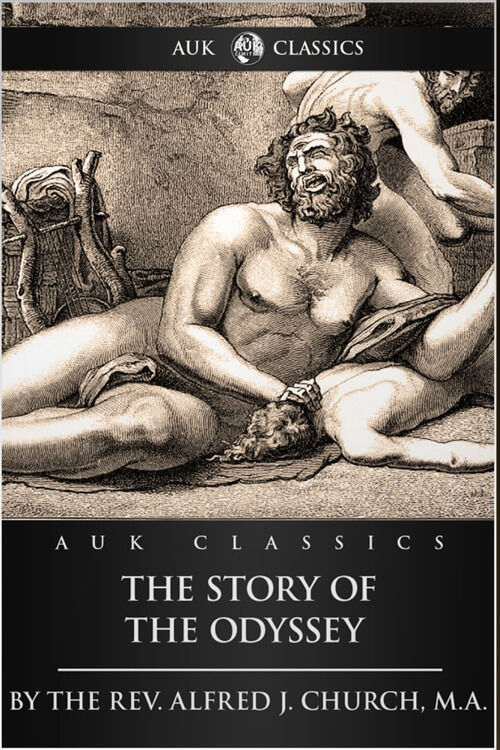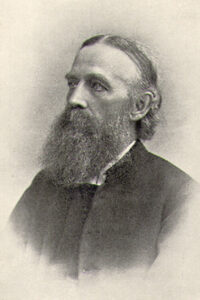
The Story of the Odyssey
Three thousand years ago, the world was still young. The western continent was a vast wilderness, and the more significant part of Europe was inhabited by savage and wandering tribes. Only a few nations at the eastern end of the Mediterranean and in the neighboring parts of Asia had learned to dwell in cities, to use a written language, to make laws for themselves, and to live in a more orderly fashion. Of these nations, the most brilliant was that of the Greeks, who were destined in war, in learning, in government, and the arts, to play a great part in the world, and to be the real founders of our modern civilization. While they were still rude people, they had noble ideals of beauty and bravery, of duty and justice. Even before they had a written language, their singers had made songs about their heroes and their great deeds; and later these songs, which fathers had taught to children, and these children to their children, were brought together into two long and wonderful poems, which have ever since been the delight of the world, the Iliad and the Odyssey.
The Iliad is the story of the siege of Ilium, or Troy, on the western coast of Asia Minor. Paris, son of the king of Troy, had enticed Helen, the most beautiful of Grecian women, and the wife of a Grecian king, to leave her husband’s home with him; and the kings and princes of the Greeks had gathered an army and a fleet and sailed across the Aegean Sea to rescue her. For ten years they strove to capture the city. According to the fine old legends, the gods themselves took a part in the war, some siding with the Greeks, and some with the Trojans. It was finally through Ulysses, a famous Greek warrior, brave and fierce as well as wise and crafty, that the Greeks captured the city.
The second poem, the Odyssey, tells what befell Ulysses, or Odysseus, as the Greeks called him, on his homeward way. Sailing from Troy with his little fleet of ships, which were so small that they used oars as well as sails, he was destined to wander for ten years longer before he could return to his rocky island of Ithaca, on the west shore of Greece, and to his faithful wife, Penelope.
He had marvelous adventures, for the gods who had opposed the Greeks at Troy had plotted to bring him ill fortune.
Read or download Book
Rev. Alfred J. Church
Alfred John Church (29 January 1829 – 27 April 1912) was an English classical scholar.
Church was born in London and was educated at King’s College, London, and Lincoln College, Oxford. He took holy orders and was an assistant master at Merchant Taylors’ School from 1857 to 1870. He subsequently served as headmaster of Henley-on-Thames Royal Grammar School from 1870 to 1873, and then of King Edward VI School, Retford, from 1873 to 1880. From 1880 until 1888 he was a professor of Latin at University College, London.
While at University College in partnership with William Jackson Brodribb,[2] he translated Tacitus and edited Pliny’s Letters (Epistulae). Church also wrote several stories in English re-telling of classical tales and legends for young people (Stories from Virgil, Stories from Homer, etc.). He also wrote much Latin and English verse, and in 1908 published his Memories of Men and Books. Church died in Richmond, Surrey.
Publications
The Bible Examiner: Containing Various Prophetic Expositions
The Life of Cnaeus Julius Agricola by Tacitus, Translated by Alfred John Church and William Jackson Brodribb
Select Letters of Pliny the Younger. (1871); translated and edited by A. J. Church and W. J. Brodribb
Stories from Virgil. (1879)
Stories from the Greek Tragedians. (1880)
The Story of the Persian War. (1881)
Stories of the East from Herodotus. (1881)
Roman life in the days of Cicero. (1883)
Stories from Livy. (1883)
The Count of the Saxon Shore. (1887) historical novel – with the collaboration of Ruth Putnam.
The Hammer. (1890)
Stories from the Bible (1890)
The Laureate’s Country (1891) – with illustrations from drawings by Edward Hull.
Callias. (1891)
The burning of Rome: or, a story of the days of Nero. (1891)
The Story of the Odyssey. (1892)
The Story of the Iliad. (1895)
Lords of the World. (1897)
Stories from Ancient History (1907) – with illustrations by H. R. Millar.
The Faery Queen and Her Knights (1909)






